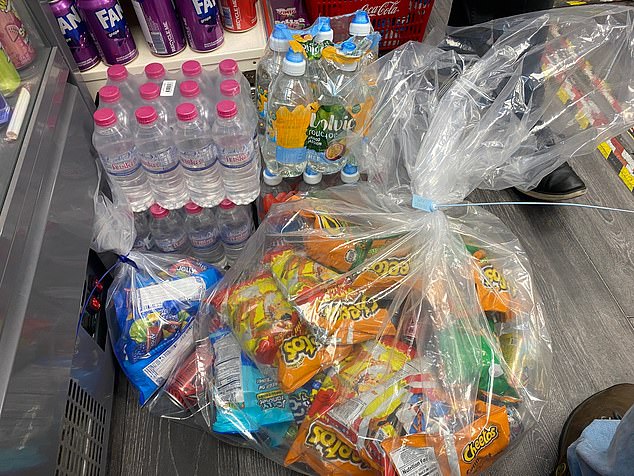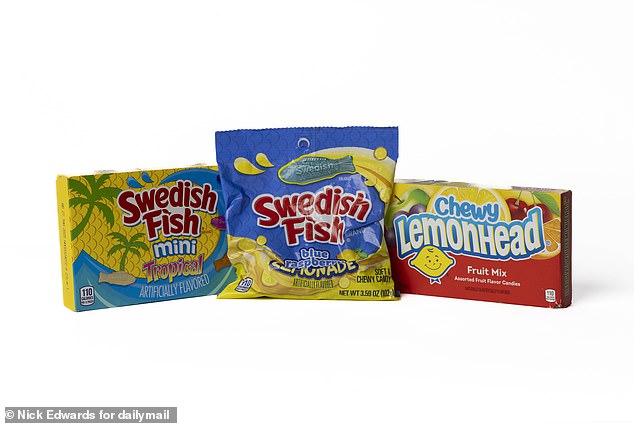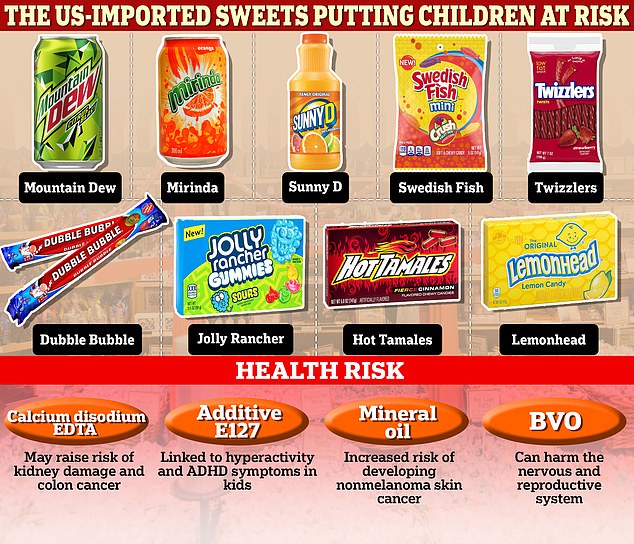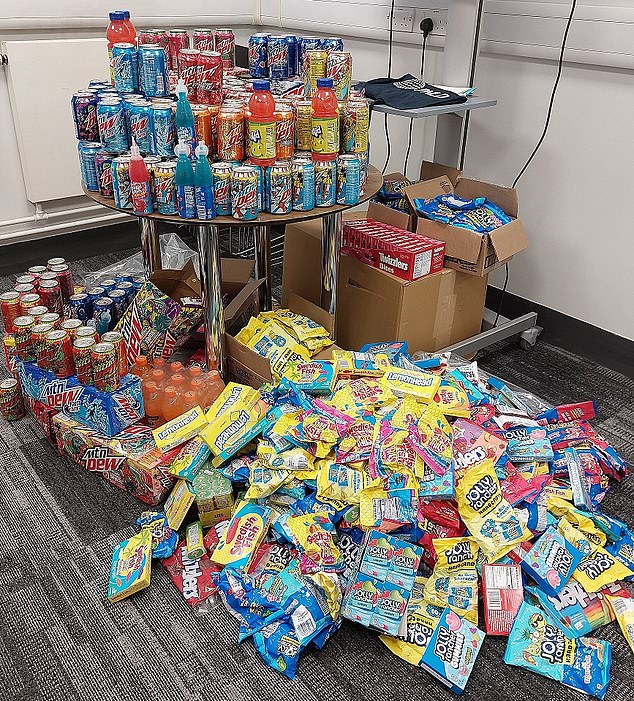Brits have been warned that hundreds of thousands of sweets, snacks and soft drinks on corner shop shelves could contain banned additives linked to behavioral problems and even some types of cancer.
The Chartered Trading Standards Institute (CTSI) issued an alert following its recent audit which identified 4,000 potentially harmful items worth £8,500 seized in Staffordshire alone.
The concern relates to imported American delicacies containing potentially dangerous or undeclared ingredients, demand for which is said to be increasing due to videos celebrating the items posted on TikTok.
The CTSI investigation uncovered widespread sale of crisps containing the additive ‘Yellow 6’, a synthetic food coloring restricted in Britain.
In the UK, products containing this substance, also called “sunset yellow” or “E110”, must carry a disclaimer stating that the products may cause hyperactivity in children.
Another worrying chemical found was the preservative EDTA, which is found in the US version of Mountain Dew, but is completely banned in soft drinks in the UK.
Also called calcium disodium, studies of this compound have revealed links to fertility problems and the development of colon cancer.
Carrageenan, a thickener made from red algae, was also found in several jelly candies.
Although the Chartered Trading Standards Institute did not name any of the products that had been confiscated directly, the images show items such as Cheetos crisps, sweets such as Jolly Ranchers, Swedish Fish, Lemonheads and Twizzlers, as well as various flavors of Mountain Dew soft drink. among those seized by the authorities

The Institute warned that stores are responding to massive demand among young people for imported American sweets that are banned in Britain because they contain ingredients linked to health risks.
While carrageenan is not banned in the UK, it is prohibited from being added to jelly-type sweets sold in Britain as it can pose a choking hazard to children due to its firm consistency.
Other banned substances found in candy include mineral oils used to increase the shelf life of the products and create a smooth, shiny coating.
While considered safe in the U.S., studies suggest the petroleum-derived additive may increase the risk of non-melanoma skin cancer and bladder cancer.
Chemically bleached flour, which is banned in the UK due to its link to cancer risk, was also found in some items.
Although CTSI did not name any of the confiscated products, the images show Cheetos Crips, candies such as Jolly Ranchers, Swedish Fish, Lemonheads and Twizzlers, as well as several flavors of Mountain Dew soda among those seized by authorities.
CTSI also warned that several products did not comply with UK rules on allergy warnings and, in some cases, had long expired.
CTSI said the Christmas season is a period of high demand for these products, with interest among British children fueled by influencers posting “candy haul” videos and reviews of imported sweets on social media.
Dean Cooke, food director at CTSI, said: “Social media has amplified demand for American sweets, with influencers on platforms like TikTok showcasing these colorful products in ways that appeal to children and teens.

A previous MailOnline investigation found that banned white mineral oil was found in Swedish Fish and Lemonhead sweets sold in American sweet shops across London.

Popular filling delicacies such as Jolly Ranchers, Swedish Fish and Lemonheads are imported from the USA and are widely available throughout the UK. In addition to appearing on a large number of candy shelves across the country, its popularity is growing online, with ads appearing on TikTok and Instagram. While the recipes of versions of the products sold in high street stores have been modified to comply with UK standards, those with a US formulation that are imported illegally include banned chemicals.
“While this boosts seasonal sales, it also creates a dangerous market for items that do not meet UK safety standards.”
He said that while trading standards officials worked to remove such products from British shelves, he added: “Parents should be vigilant when checking labels to protect their children from potential harm.”
Cooke added: “Importers, by law, have to re-label products with a UK or Great Britain address.”
“If the food does not have a UK or Great Britain address on the label, we advise you not to buy it.”
Councilor Victoria Wilson, head of trading standards at Staffordshire County Council, where the recent audit took place, added: “During this pilot project we were alarmed to find more than 3,300 dangerous items on sale, many of which contained unauthorized ingredients and were aimed at children.’
‘These items are often mislabeled and may contain harmful additives, posing serious public health concerns. Parents should be alert and avoid products with unclear labels, especially during the holiday season.’
The warnings echo those of a MailOnline investigation earlier this year that found a host of banned or undeclared ingredients in US confectionery products.
These included the Swedish Fish and Lemonhead candy brands, which contained a banned white mineral oil.
During that investigation, Yellow 6 was also found in some versions of both candies without warning labels.
Previous audits have also uncovered some examples of imported beverages containing brominated vegetable oil (BVO), which is used to prevent beverage flavors from separating and floating to the surface.
BVO is banned in the UK and is linked to headaches, memory loss, balance problems and thyroid problems.


